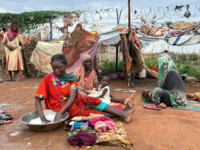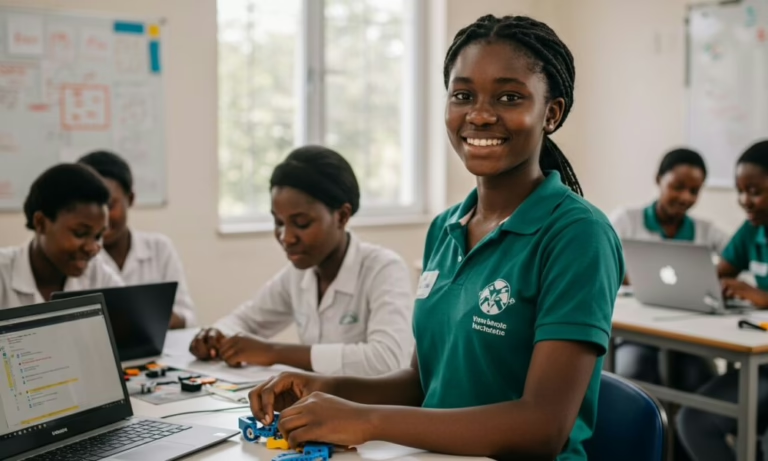Each October, the International Day of the Girl Child serves as a vital moment to examine the challenges girls encounter and the opportunities they require to flourish. The 2025 theme, “The Girl I Am, The Change I Lead: Girls on the Frontlines of Crisis,” highlights the transformative role girls play in driving progress within their communities. In Nigeria, this dialogue is incomplete without focusing on expanding girls’ access to science, technology, engineering, and mathematics (STEM)-fields that are pivotal to the nation’s economic growth and digital advancement.
When girls are denied quality education or hands-on skills, they miss out on participating in sectors that fuel innovation and development. A 2023 UNICEF report revealed that approximately 7.6 million Nigerian girls were not enrolled in primary or junior secondary education. For those attending school, especially in public institutions, cultural expectations, insufficient facilities, and limited exposure to applied sciences often hinder their understanding of how STEM disciplines can address real-life problems. Overcoming these obstacles requires more than traditional teaching; it calls for immersive experiences, mentorship programs, visible female role models, and coordinated efforts across multiple sectors.
Several organizations have stepped up to support girls’ education independently of government initiatives. Among these is the Developing Engineering Leaders Through Her (DELT-Her) Initiative, a flagship partnership between the Presidential Implementation Committee on Technology Transfer (PICTT) and the National Agency for Science and Engineering Infrastructure (NASENI) Delta-2 Programme. DELT-Her is dedicated to empowering young Nigerian girls by providing STEM kits, fabrication equipment, and mentorship from accomplished female engineers and innovators. This approach nurtures curiosity into competence, aligning with Nigeria’s broader goals of digital transformation and industrialization by cultivating a future generation of female engineers and innovators.
Since launching in 2024, DELT-Her has reached 150 girls across 15 schools in the Federal Capital Territory, Kwara, and Nasarawa States. Participants receive STEM kits, connect with mentors, and engage in problem-solving activities that translate theoretical knowledge into practical applications. The program has sparked enthusiasm and self-assurance among these girls, who are now learning coding, design, and fabrication skills. Many have begun showcasing their projects at school fairs and local community events, demonstrating their growing capabilities.
The gender disparity in STEM fields remains significant. According to the National Bureau of Statistics, women accounted for only 22% of students enrolled in engineering and technology courses at Nigerian universities. Initiatives like DELT-Her are crucial in reversing this trend by offering early exposure and leadership development opportunities. When a girl completes her first prototype or drafts her initial business plan, she gains not only technical expertise but also a renewed sense of identity as an innovator.
As these young women develop their skills and ambitions, their impact extends well beyond academic settings. They motivate their peers, diversify the talent pool, and contribute to a more inclusive innovation landscape. This cascading effect-girls inspiring other girls-holds the promise of transforming industries and strengthening Nigeria’s human capital. Their leadership drives creativity, boosts productivity, and ensures the nation harnesses the full potential of all its citizens.
The DELT-Her Initiative embodies a vision of empowerment and equality, equipping girls to emerge as leaders, innovators, and catalysts for change. Success will be gauged by the number of girls advancing to higher STEM education, the engagement levels of mentors, and the confidence with which these young women tackle community challenges.
This comprehensive strategy resonates with the essence of the 2025 International Day of the Girl Child, inspiring girls not only to engage in STEM but to lead the innovations that will shape the future.























0 Comments